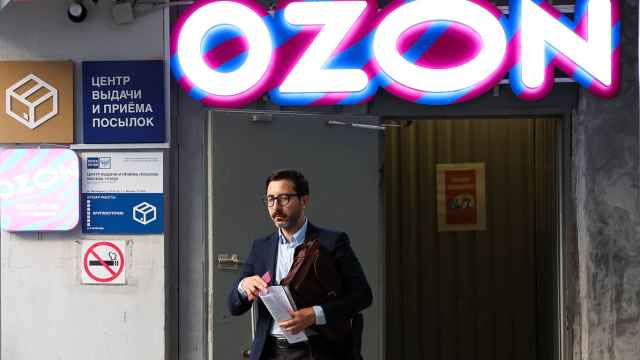Citibank, the Russian subsidiary of U.S. banking group Citigroup, will wind down its remaining operations in Russia from Nov. 1, Reuters reported Friday.
The bank, one of the largest Western lenders on the Russian market, said it would stop paying interest and close support for all savings and deposit accounts from that date. It advised clients to transfer their remaining funds to other banks as soon as possible.
Citi previously halted debit card services, money transfers, cash withdrawals at terminals and transactions via the Central Bank’s Faster Payments System in 2024. It closed its last retail branch in Russia, located near Moscow’s Paveletskaya metro station, in November of that year.
Citigroup first announced plans to sell its Russian consumer business in 2021 but opted to close operations entirely following Moscow’s February 2022 invasion of Ukraine.
Its loan portfolio has shrunk by 98% since early 2022, while deposits from individuals and corporate clients have dropped by between 90 and 150 times.
Other European lenders are also retreating. Austria’s Raiffeisen Bank International, the largest Western bank still operating in Russia, stopped processing most cross-border transfers last August.
Italy’s UniCredit said Wednesday that it would stop taking new corporate clients in Russia and raise account servicing fees by up to tenfold.
Both banks are under pressure from the European Central Bank to slash their Russian exposure.
France’s Societe Generale, Dutch group ING and U.S. bank Goldman Sachs all managed to sell their Russian subsidiaries following the invasion of Ukraine, while Raiffeisen has faced obstacles.
Reuters reported this week that the Kremlin has blocked Raiffeisenbank’s attempts to sell its Russian subsidiary in order to preserve financial links with Europe, which still pays Russia several billion euros a year for oil and gas.
A Message from The Moscow Times:
Dear readers,
We are facing unprecedented challenges. Russia's Prosecutor General's Office has designated The Moscow Times as an "undesirable" organization, criminalizing our work and putting our staff at risk of prosecution. This follows our earlier unjust labeling as a "foreign agent."
These actions are direct attempts to silence independent journalism in Russia. The authorities claim our work "discredits the decisions of the Russian leadership." We see things differently: we strive to provide accurate, unbiased reporting on Russia.
We, the journalists of The Moscow Times, refuse to be silenced. But to continue our work, we need your help.
Your support, no matter how small, makes a world of difference. If you can, please support us monthly starting from just $2. It's quick to set up, and every contribution makes a significant impact.
By supporting The Moscow Times, you're defending open, independent journalism in the face of repression. Thank you for standing with us.
Remind me later.






